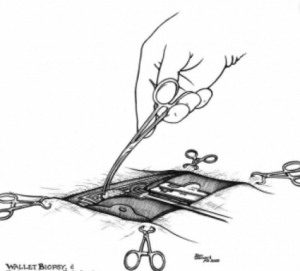As tempting as it is to just ignore my predictions for workers’ comp in 2020 and blame mis-calls on COVID, that wouldn’t be right.
So, here’s how I did.
1. The work comp insurance market will stay soft.

Yep. And it would’ve stayed marshmallow-y soft even if the damn virus hadn’t spawned.
2. Work comp medical trend will remain flat.

As the kids say, that’s a hard yes...in large part because lots of injured workers didn’t get all the care they should/could have. However, I’m basing this on spotty information…we will know a lot more later this spring. But, so far, medical costs are looking flat to lower.
3. Facility costs will gain a lot more attention.

Well, not enough. While there was a kerfuffle about Florida’s abject failure to correct it’s blatant giveaway to facilities, this got lost in the shuffle.
4. Consolidation in the work comp services industry will continue, with more of the big players merging/acquiring each other.
Yup. Concentra went on an acquisition tear, and Mitchell bought Coventry. Expect more to come in 2021.
5. OneCall will be sold.
Nope. While discussions were held at various times with various parties, the gap between what potential buyers would pay and what owners KKR and GSO would accept was too broad.
6. California’s crooked docs will be outed.
No dammit.
With SB 537 signed into law, I thought we would know which docs were the bad actors in 2020 – like the PM&R doc in northern California who filed IMR requests resulting in 2,800 IMR letters and 4,441 Medical Decisions.
(while the law doesn’t require this outing to happen before 2024, I’d expected we’d know the names of the worst offenders in 2020.)
7. More effective approaches to chronic pain and opioid abuse disorder are here – and will gain a lot of traction in 2020.
That’s a yes – despite COVID sucking all the air out of every room, more and more payers launched smarter/better/more patient centric approaches to OAD and chronic pain. Carisk’s Pathways 2 Recovery gained significant traction… (Carisk is an HSA consulting client).
8. Don’t expect any meaningful state legislation/regulatory changes.
Well, outside of doing everything possible to expand access to and use of tele-everything, and all that stuff about presumption, nothing happened. Now that I read that…it’s clear that a lot happened. So, that’s a no.
9. Benefit adequacy will gain some traction.
I admitted this was much more of a hope than an actual prediction…and it didn’t happen. I’ll blame this in part on COVID…but Double Dammit.
10. Conferences will continue to struggle.
Uh, a huge yes. I know, the demise of the conference was largely driven by COVID, but hey – I took the hit on leg/reg changes and adequacy, so will take a yes where I can get it.
Oh, and one more.
Back in 2019 I wrote this…
A very big external event/issue/mess will affect the economy – and thus workers’ comp
So, I hereby invoke the “better late than never” scoring rule and take a half-a-yes for this prescient – but 60 days too late – prediction.
The net – I got 5 1/2 points.
Tomorrow – predictions for 2021.



Joe – enjoy reading predictions. Not a bad score given Covid impact. I am interested in learning more about Carisk which you state…launched smarter/better/more patient centric approaches to OAD and chronic pain. You have any info you can send me?
Thanks Audrey – I’ll follow up via email.
Hope you have a most excellent 2021.
be well – Joe
Joe – I would say in a year like we just had, over 50% is not bad. I wish we were scoring as well on the pandemic.
thanks much Skip – hope you are well and your loved ones are flourishing
What are examples of the meaningful legislative / regulatory changes?
Hello Peter – hope your New Year has started off well.
The changes include presumption, telemedicine, virtual hearings, relaxing of utilization review requirements including those for drugs.
Sad to hear that the “crooked” doctors were not outed from California.
We have the same issues here in Australia, quite frankly the injured worker community are in peril from them.
Thanks for the note Rosemary. I’d also be very wary of American drug companies trying to addict your fellow citizens, reprising the playbook that killed hundreds of thousands of Americans.